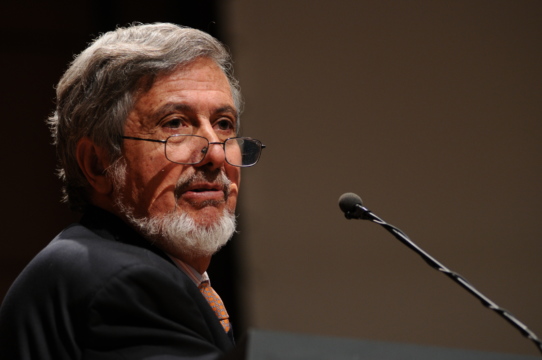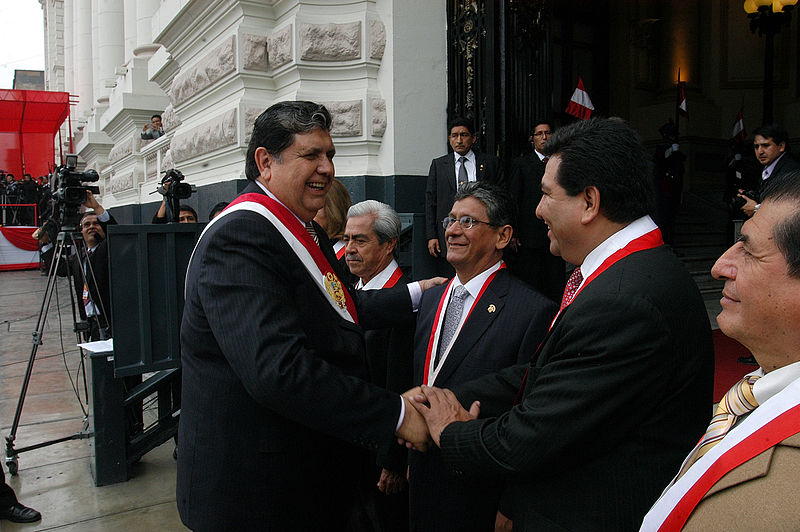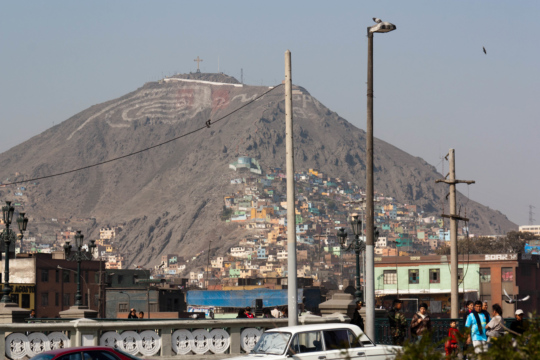
Impact of Lower Commodity Prices on Latin American Growth
With the recent decline in commodity prices, why have some countries have fared better than others?
On April 17, Alan Garcia, Peru’s two-time president from the APRA party, committed suicide at his home in Lima before being detained by police.
Garcia was a controversial figure for much of his career. He was a gifted orator and skillful politician who, with his 1985 election, brought great hope and high expectations to Peru. That administration ended in utter failure, however, with an insurgency and economy out of control, and massive human rights abuses. Garcia made an impressive comeback in 2006, presiding over sustained economic growth, though the period was accompanied by an explosion of social conflicts. Although Garcia had long been dogged by corruption allegations, it was the Odebrecht bribery scandal that ultimately cornered him.
Just days before the second round of the 2006 elections, Michael Shifter, who had lived and worked in Lima for four years during Garcia’s first term, conducted a revealing and wide-ranging interview with the Peruvian president at his home that ran in The Washington Post.
Alan Garcia was dubbed the Latin American Kennedy when he was elected president of Peru in 1985, promising to reform a stagnant country and improve the lot of the poor. Yet when he left in 1990, Peru's economy was in ruins, a Maoist insurgency was terrorizing the country and Garcia's popularity had plummeted. Now, the charismatic Garcia is running for president again; he goes into today's runoff a slight favorite over anti-U.S. nationalist Ollanta Humala. Garcia recently spoke in Lima about his second act in politics with the Inter-American Dialogue's Michael Shifter.
Michael Shifter (MS): I was an eyewitness to your first administration, which wasn't exactly a great success. Some have called it the worst government in Peruvian history. Why should Peruvians believe that a second Garcia administration would be different?
Alan Garcia (AG): We did not understand how to deal with a subversive, clandestine war. Perhaps my government should have emphasized a more direct and repressive approach in fighting the Shining Path insurgency. Our focus was more sociological. We offered interest-free credits to poor peasants, so they wouldn't be recruited by Shining Path. Our approach to poverty increased inflationary pressures. In retrospect, it would have been more intelligent to put restrictions on finance capital and not take over the banks. This mistake had political consequences, since in addition to Shining Path and communism, we ended up fighting the business class.
MS: And you were young, only 35 years old.
AG: Those mistakes could have been made by a man of 50. I don't attribute them to my youth.
MS: Has Alan Garcia evolved since he left the presidency in 1990?
AG: I now realize there are no magic bullets. Change happens incrementally. . . . Not only has a lot of time passed, but the world's economic structures, information technology and communication have changed. . . . What before seemed like a threat is now a virtue. . . . We are not against private property, but rather monopoly control. Businesses should compete among themselves. What my friend Evo Morales [Bolivia's president, who nationalized the natural gas sector] just did is kill the goose that lays golden eggs.
MS: In the late 1980s, [Peruvian writer] Mario Vargas Llosa was your chief opponent, yet today he urges Peruvians to vote for you as the "lesser of two evils."
AG: I don't think there is a single president on this planet who did not get votes as the lesser evil. . . . When they voted for Nixon and not for McGovern, wasn't it the same thing? I think this happens everywhere. Ultimately, it is not about the lesser evil -- it is being useful. Today I am useful to Peruvian society, to its middle class, to its small businesses, to its people who have democratic ideas, who do not like [Hugo] Chavez [the anti-American president of Venezuela], who don't like Evo Morales and feel that I am useful to do things differently.
MS: You mentioned Chavez, who has become a big issue in this campaign.
[...]
With the recent decline in commodity prices, why have some countries have fared better than others?
Peru’s growing urban middle class is one of the country’s greatest assets, but it also brings political and governance challenges.
In Peru, it is generally known that a better quality education could build citizens, who are better prepared for the democracy and modern and flexible workers, who would help reduce poverty. However, over the last decade- as well during the previous one- many factors have prevented the improvement of the…
 Congreso de la República del Perú / Flickr / CC BY 2.0
Congreso de la República del Perú / Flickr / CC BY 2.0
